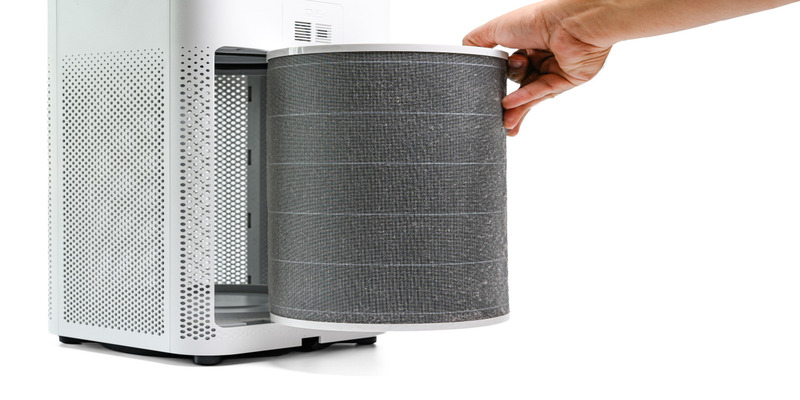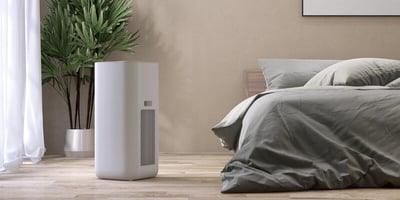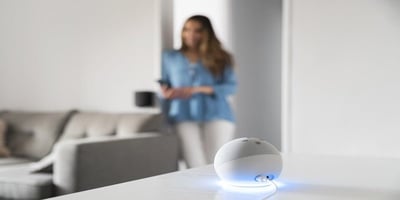How to Clean Washable HEPA Filters: A Comprehensive Guide
Key Takeaways
- Look for "washable" or "permanent" labels - these are the only ones safe for water cleaning
- Proper maintenance keeps the 99.97% particle capture working like new
- Clean every 1-3 months depending on dust levels and home conditions
- Air-dry completely for 24-48 hours - heat kills filters fast
- Toss filters that smell funky, look damaged, or barely push air after cleaning
That air purifier sitting in your living room? It's been working overtime. Most folks chuck HEPA filters the moment they turn gray, completely missing that some can bounce back with a good cleaning. Washable HEPA filters aren't just money-savers - they keep that 99.97% efficiency intact if you handle them correctly. Mess up the process though, and you're looking at a ruined filter.
Washable vs. Regular HEPA Filters
Washable HEPA filters are built like tanks. Synthetic fibers that don't fall apart when wet, frames that won't buckle, moisture-resistant materials throughout. Regular HEPA filters? They're made from delicate glass fibers that turn to mush the second water hits them.
Spotting a washable filter is pretty straightforward. Check the label for "washable," "reusable," or "permanent." Some brands use colored stickers or special model codes. No clear marking? Don't gamble - stick with replacement.
Air purifiers with washable HEPA filters cost extra upfront but pay off over time. Fewer trips to buy replacements means more cash in your pocket.
Before You Start Cleaning
Take a hard look at your filter first. Some problems can't be fixed.
Clean if you see:
- Surface dust that hasn't worked deep into creases
- Solid frame with no damage
- Springy fibers when you press gently
Replace if there's:
- Tears, holes, or crushed areas
- Bent or cracked frame pieces
- Funky smells or deep stains
Grab dish soap, a soft brush, towels, and find somewhere with good airflow. Unplug your machine and wait a few minutes before touching anything. Dirty filter? Gloves and a dust mask save you from breathing crud.
The Cleaning Process
Getting Started
Power down and wait five minutes. Pop out the filter using clips or tabs - grab only the frame, never the filter material itself.
Outside works best for the initial tap-out. Loose stuff falls right off. Use your soft brush along the pleats, not against them.
Washing Time
Rinse from the clean side first using lukewarm water. Keep pressure gentle - you're not scrubbing dishes here.
Grimy filter? Make soapy water in a basin and let it soak briefly. Light swishing beats aggressive scrubbing every time.
Rinse until water runs crystal clear. Soap residue attracts more dirt later, so be thorough.
The Waiting Game
Set up your filter somewhere airy but away from direct heat or sun. Prop it up so air moves around all sides.
Expect 24-48 hours of drying time. Bone-dry means bone-dry - any moisture left behind spells trouble.

Don't Make These Mistakes
Hot water wrecks synthetic fibers and natural materials. Lukewarm is your friend.
Skip harsh cleaners completely. Bleach, enzymes, anything with strong chemicals will trash your filter or leave nasty residues. Basic dish soap handles the job perfectly.
Heat sources are filter killers. Hair dryers, ovens, radiators - they all warp frames and shrink materials unevenly.
Heavy scrubbing squashes the filtration media. Once compressed, those spaces don't bounce back. Light touch wins every time.
Cleaning Schedule That Works
Different homes need different timing:
- Pets/smoking: Every 4-6 weeks
- Normal households: Every 8-12 weeks
- Low-dust areas: Every 3-4 months
Your machine talks when it's struggling. Weird noises, weak airflow, working harder than usual - all signs it needs attention. Some newer models include filter life indicators that change color or flash when cleaning time approaches.
Environment matters big time. Construction nearby? Pollen season? Heating season stirring up settled dust? All reasons to clean more often. Cooking habits affect timing too - frequent frying or grilling creates more airborne particles that clog filters faster.
Seasonal adjustments make sense. Spring cleaning isn't just for closets - it's prime time for filter maintenance as pollen counts spike. Fall preparation before heating season kicks in prevents dust circulation through your home.
Check out our HEPA filter lifespan guide for the full story on when to replace instead of clean.
Set phone reminders. Trust me on this one. Mark your calendar with cleaning dates and track how the filter looks each time. This data helps you adjust your schedule based on actual conditions rather than generic recommendations.
 When Cleaning Stops Working
When Cleaning Stops Working
Washable filters don't last forever. Persistent smells after cleaning mean embedded particles or mold - neither comes out with soap and water.
Frame cracks let air bypass the filter completely. Flat spots that won't spring back have lost their particle-catching power.
Weak airflow after multiple cleanings signals internal damage you can't see. Time for a new one.
Performance testing helps determine replacement timing. Hold a flashlight behind your clean, dry filter - excessive light passing through indicates compromised filtration density. Compare airflow before and after installation using your hand near the output vents.
Keep records of cleaning dates and filter performance. Most washable HEPA filters handle 6-12 cleaning cycles before replacement becomes necessary, though this varies based on water quality and cleaning technique.
Your Future Steps
Taking care of washable HEPA filters the right way keeps your air clean while saving money. Regular cleaning filters maintains that crucial 99.97% efficiency that makes HEPA technology worth having. Follow these steps, dodge the common mistakes, and you'll squeeze maximum life from your investment.
FAQ
Can I wash any HEPA filter?
Nope. Only ones marked "washable" or "permanent" can handle water. Regular filters turn into expensive garbage if you try washing them.
How often should I clean washable HEPA filters?
Every 1-3 months for most homes. Dusty conditions mean more frequent cleaning filters sessions.
What happens if I wash a regular HEPA filter by mistake?
Glass fibers clump together and create gaps. Particles cruise right through instead of getting caught. Plus you might grow mold in the wet material.
Can I use regular soap?
Mild dish soap works great. Avoid anything with bleach, enzymes, or heavy fragrances. Those chemicals either damage filters or leave residue that stinks up your air.
How do I know when my washable filter is done?
Bad smells that won't go away, visible frame damage, permanently flat sections, or poor airflow after proper cleaning. Any of these means replacement time.
Should I vacuum between cleanings?
Light vacuuming with a soft brush helps remove surface dust. But water cleaning does the heavy lifting on washable types.



































.jpg?height=200&name=photo_2024-03-18_16-41-15%20(1).jpg)

.jpg?height=200&name=photo_2024-03-28_19-57-48%20(1).jpg)
